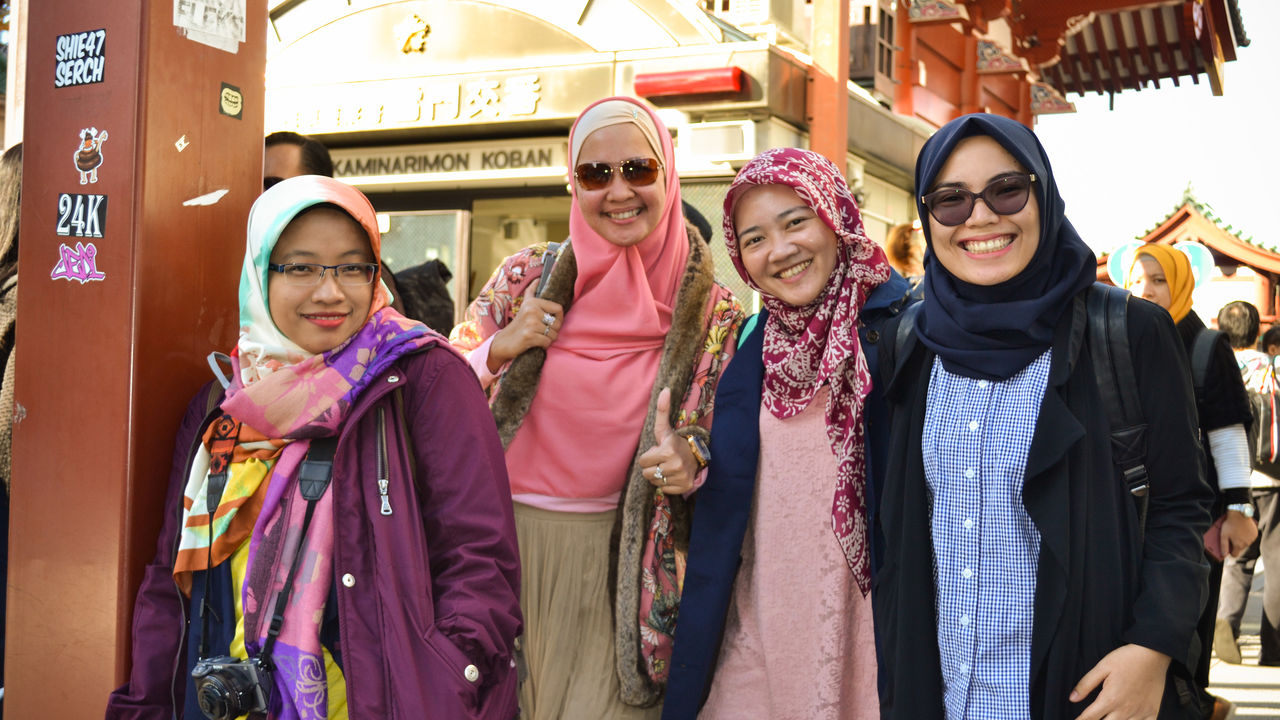
Giving Muslim Visitors a Place at Japan’s Tables
Guideto Japan
Food and Drink Travel Lifestyle- English
- 日本語
- 简体字
- 繁體字
- Français
- Español
- العربية
- Русский
The Challenge of Eating Out in Japan
With the 2020 Tokyo Olympics and Paralympics fast approaching, Japan—in both the public and private sectors—is gearing up to welcome a fresh wave of visitors from overseas. Above all else, there is a drive to assure these foreign guests that Japan is a safe and fun country. Of the more than 2.8 million overseas tourists who visited Japan in July 2018, the Japan National Tourism Organization says that more than 2.4 million—a significant majority—were from neighboring countries and regions in Asia, including from Malaysia, where Islam is the official religion, and Indonesia, which has the largest Muslim population in the world. This is heightening awareness in Japan of the need to create a Muslim-friendly environment that ensures an enjoyable experience for these visitors.
Meals are a special matter of concern for Muslims because of their religion’s dietary requirements, such as the Islamic prohibitions against pork and alcoholic drinks. Only halal food and drink, processed according to Islamic dietary law, is permissible.
Halal seals of certification displayed in restaurants, on menus, and on restaurant websites are one way of assuring Muslim visitors that they can eat safely in these places. But while there are as many as 20 institutions authorized to provide halal certification within Japan, the certification is not well known, to the extent that it makes the news when halal certification is awarded to places like Fujita Kankō’s Origami Asakusa, a Japanese restaurant in Tokyo’s popular Asakusa district, or Sōjiin, a Mount Kōya temple that provides lodging and vegetarian cuisine.
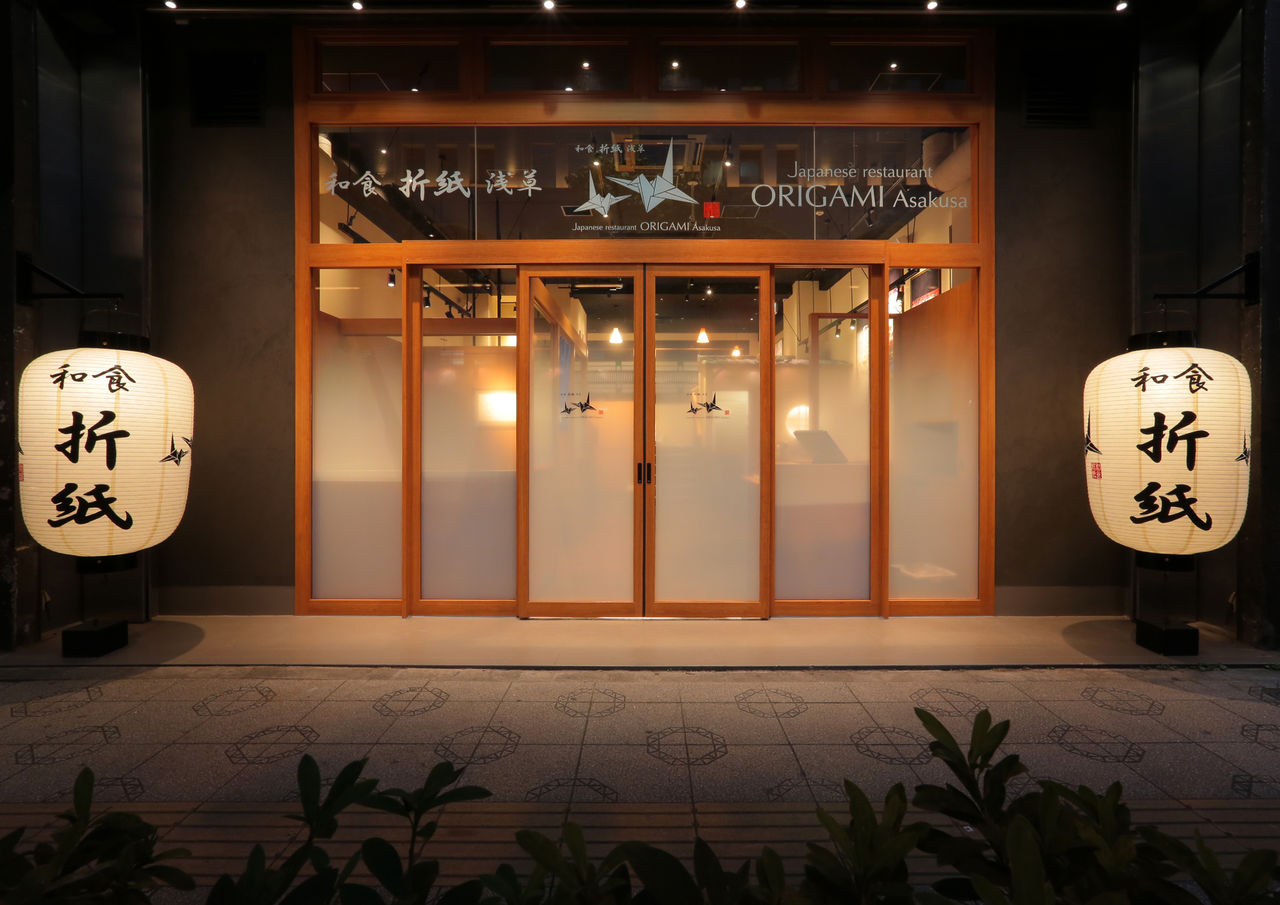
Fujita Kankō’s Origami Asakusa restaurant offers a halal menu. (Photo courtesy of Fujita Kankō.)
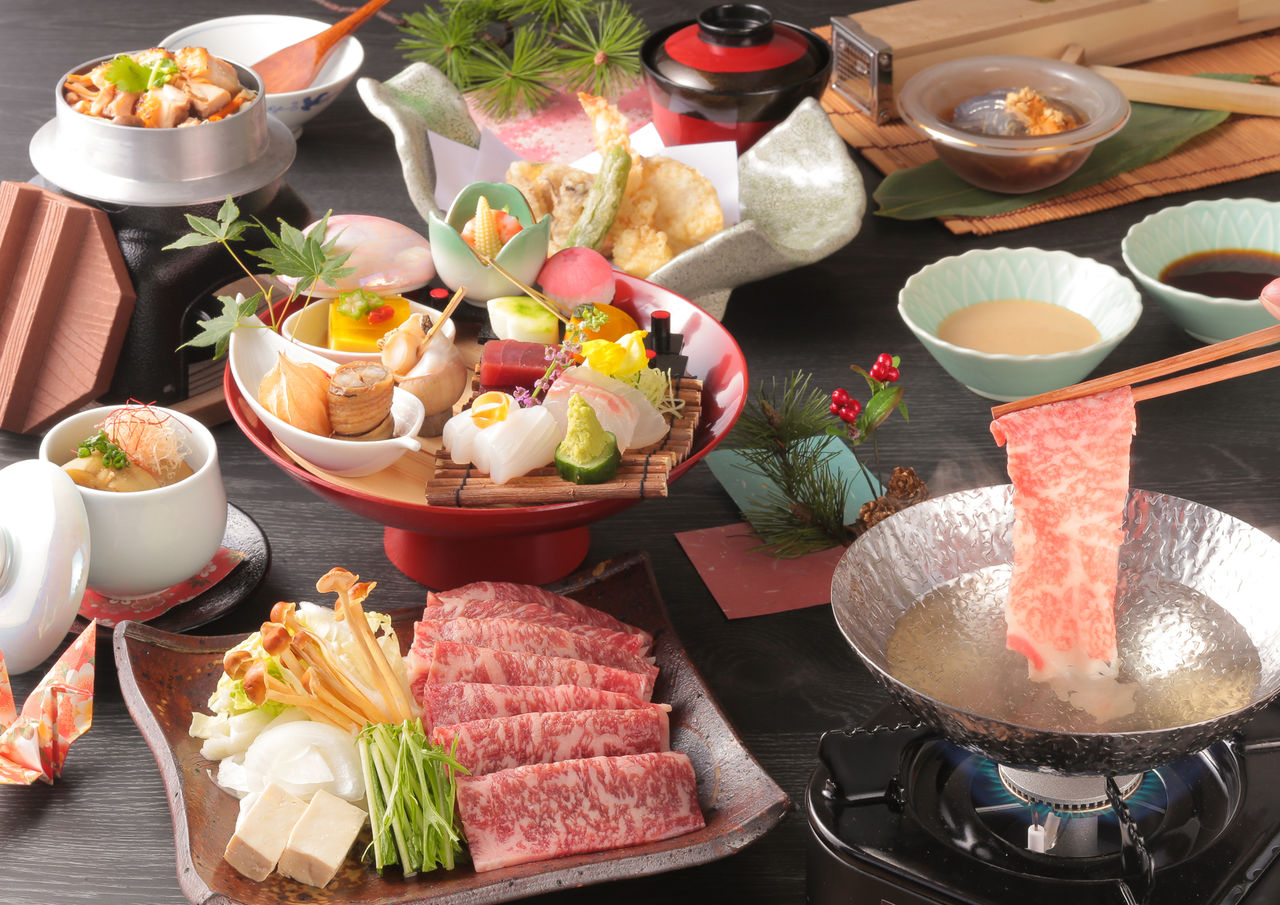
Origami Asakusa’s beef shabu-shabu course. (Photo courtesy of Fujita Kankō.)
Japan is also seeing growth in eateries that may not be halal-certified, but can be categorized as Muslim-friendly just the same. Kobe Misono, the original teppanyaki steak house, makes it clear that it has not obtained official certification. But the restaurant offers halal Kobe beef stored separately from other meats, prepared with special halal cooking utensils, and served on halal dishes, and has staff who have undergone the Japan Halal Association’s training program for Islamically accepted food handling.
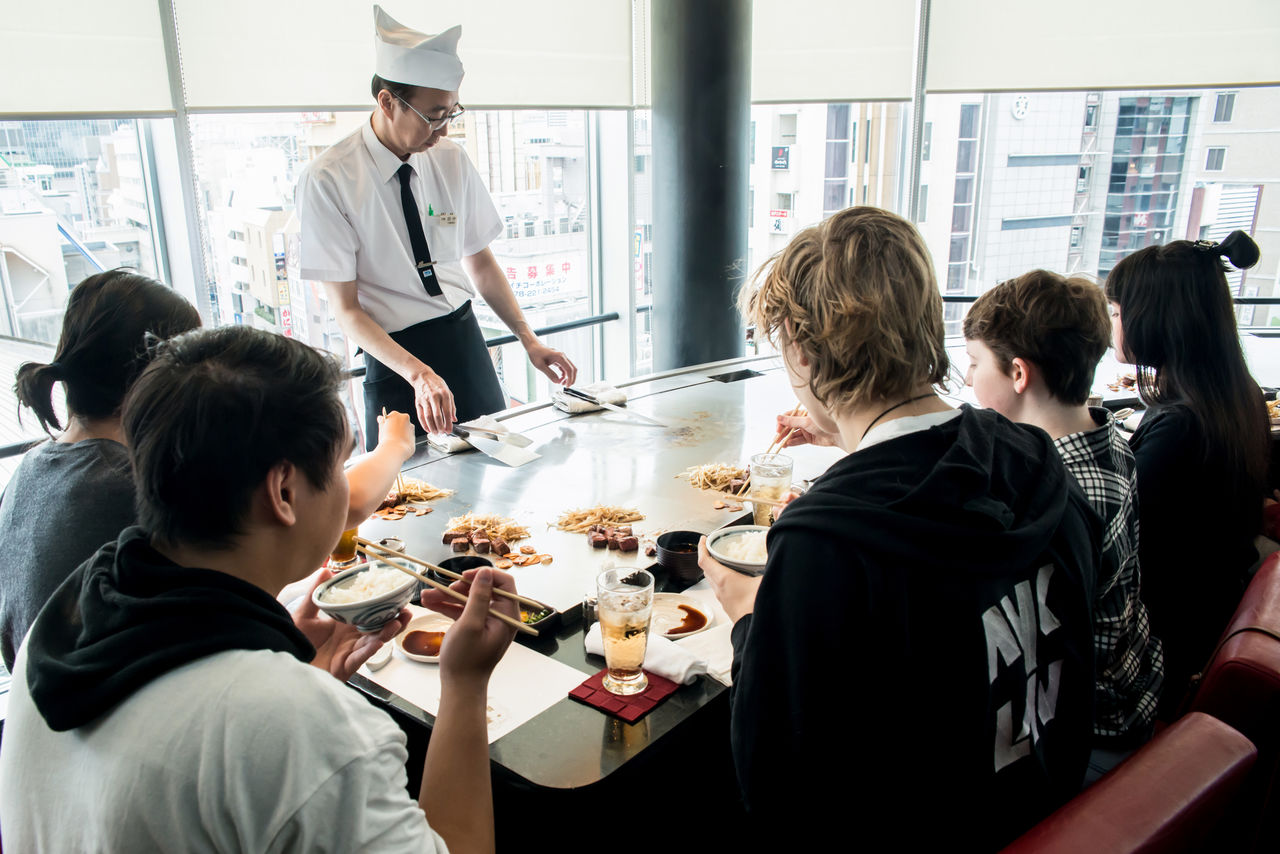
The original teppanyaki steak house, Kobe Misono. (Photo courtesy of Misono Inc.)
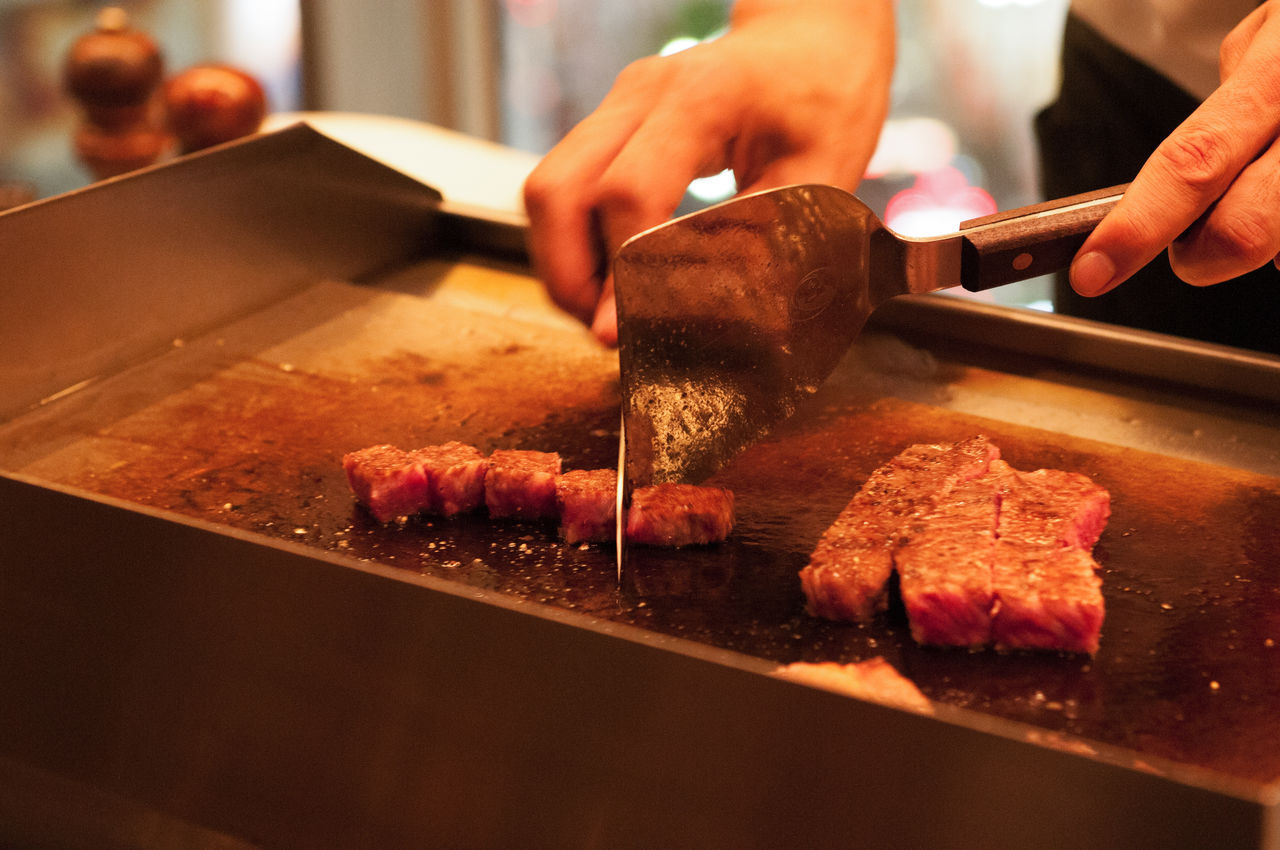
A serving of halal Kobe steak. (Photo courtesy of Misono Inc.)
Online and Print Guides for Halal Diners
The Tokyo Convention and Visitors Bureau has published the Tokyo Muslim Travelers’ Guide 2018–2019, listing 93 halal-certified and Muslim-friendly restaurants in the metropolis. Available online as a PDF download, this is a valuable resource for Muslim tourists seeking good places to eat.
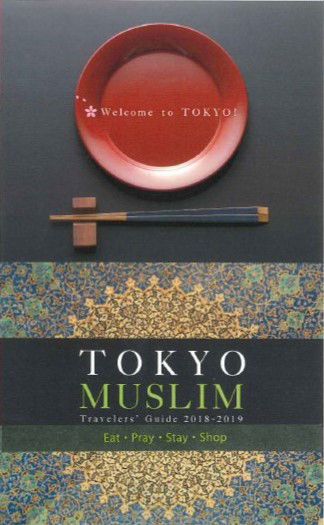
The Tokyo Muslim Travelers’ Guide 2018–2019 lists 93 halal-certified and Muslim-friendly establishments in Tokyo. (Photo courtesy of Tokyo Convention and Visitors Bureau.)
The concierges at the Nihonbashi Information Center right by the famed bridge in Chūō, Tokyo, will happily print out a computer list providing access information on Muslim-friendly eateries in the nearby Nihonbashi, Hakozaki, Koamichō, Hatchōbori, and Kanda areas, including places serving Malaysian, Arabic, and Indian cuisine.
The Asakusa Culture Tourist Information Center, across the street from the Kaminarimon gate to the temple Sensōji in Taitō, Tokyo—one of the must-see places for foreign tourists—offers a Tokyo Map for Muslims and information and assistance for Muslim tourists. The map provides an easy-to-use guide with photos of the 21 halal-certified restaurants in the Asakusa and Ueno districts.
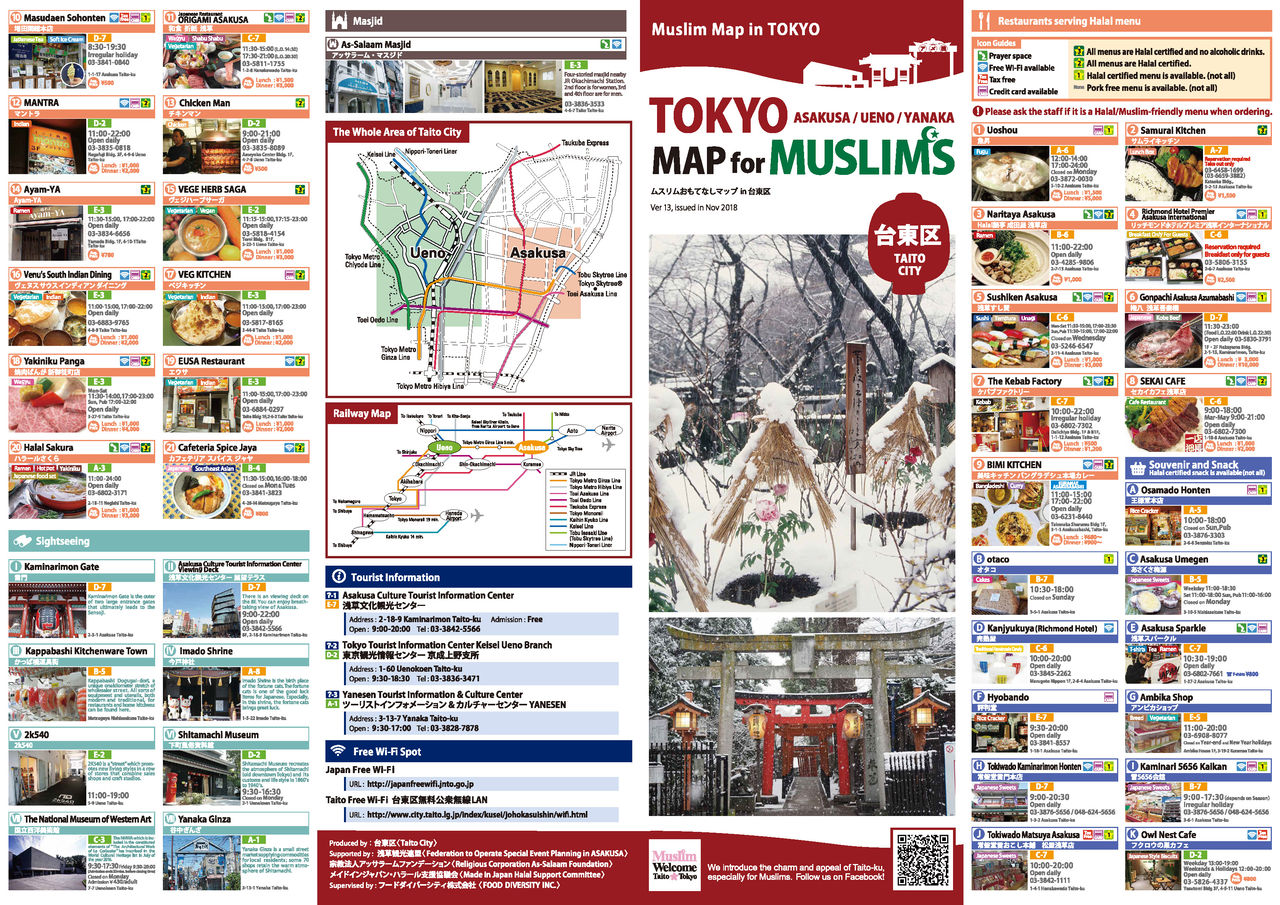
The latest version of the Tokyo Map for Muslims is also available online (see link above).
Naritaya Asakusa, a popular rāmen shop located on Asakusa’s Nishi Sandō Shopping Street with halal certification from the Japan Islamic Trust, does not use any alcohol-based ingredients, pork, or pork-based soup stock in its food.
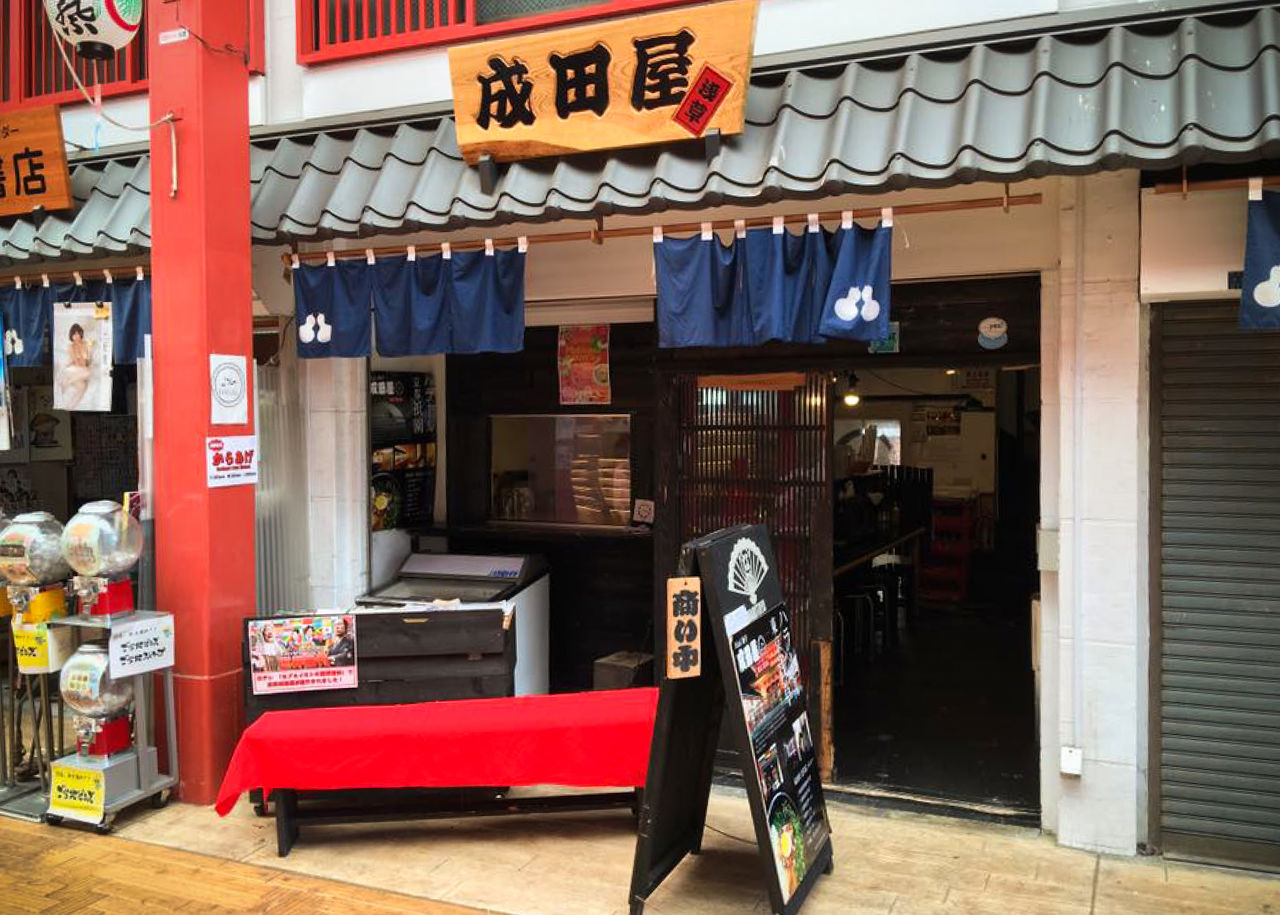
Naritaya Asakusa. (Photo courtesy of Fellows, Inc.)
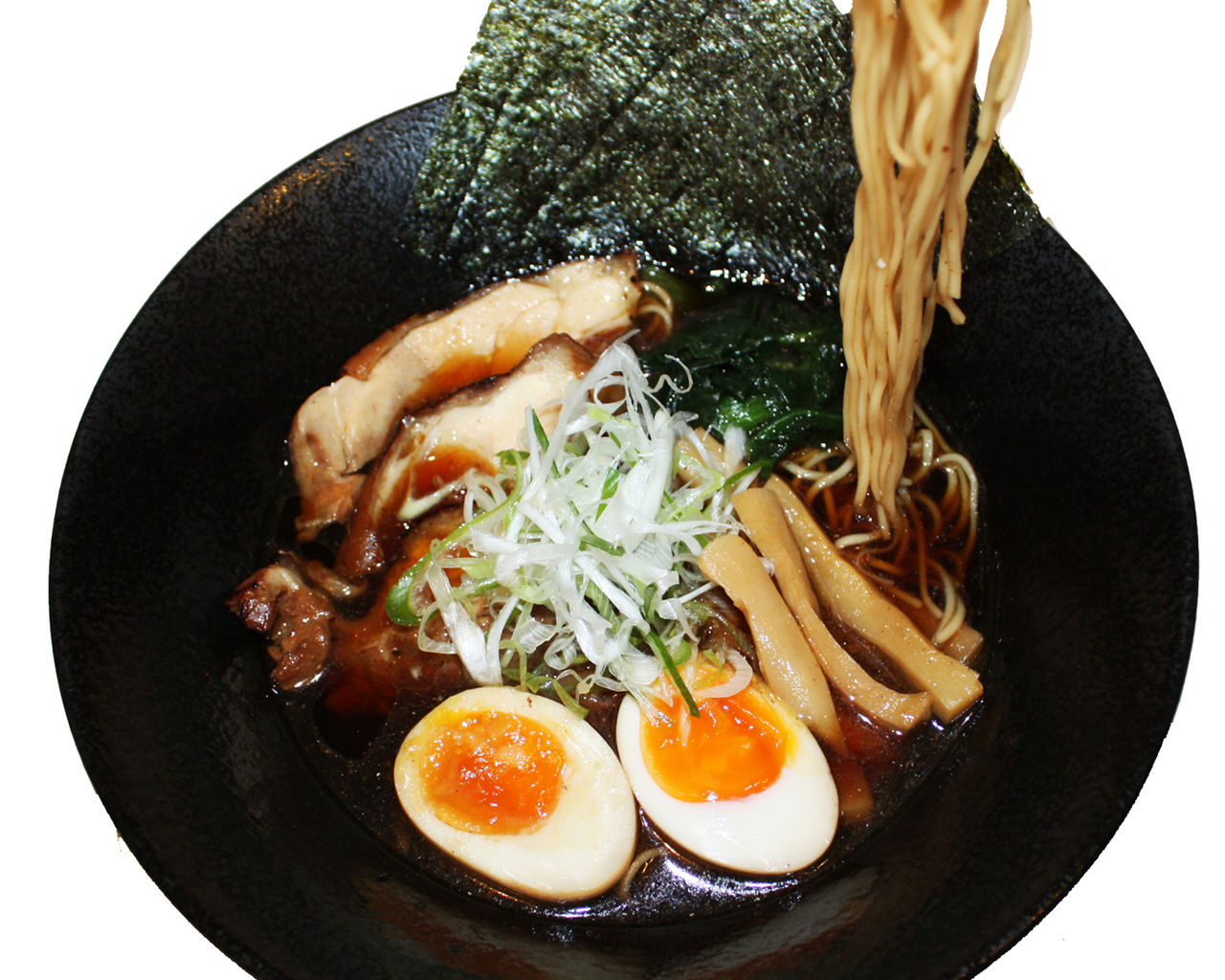
Naritaya Asakusa’s halal rāmen. (Photo courtesy of Fellows, Inc.)
On the second floor of Naritaya Asakusa is a prayer space and place for ablutions. On the ceiling is a Qibla arrow indicating the direction of Mecca. This kind of service and attention to Islamic requirements is not surprising—Naritaya Asakusa originated in Malaysia’s Johor Bahru, only to move to Japan later, giving it a natural edge when it comes to accommodating the needs of Muslim customers. Naritaya also has branches in Kyoto’s Gion district and Osaka’s Minami district.
I spoke with some Malaysian tourists enjoying a meal in the rāmen shop. “We have great difficulty finding halal restaurants in Japan,” they said. “We just happened to see this shop’s seal of certification when we passed by here. When we can’t find a halal restaurant, we buy salmon onigiri rice balls in a convenience store.”
In another conversation with some Muslim women from Indonesia taking photos at Sensōji’s Kaminarimon, I was told: “All Japanese food is delicious. We always ask first if a dish is halal and have never had any problems.” Apparently, not all Indonesian Muslims are strict adherents to the Islamic precepts, and while they will not eat pork themselves, do not mind if it is served in a restaurant where they are eating. With this attitude, they do not fret too much about a particular restaurant’s qualifications, though they will avoid places that obviously specialize in pork dishes, such as shops serving pork-broth rāmen or tonkatsu (pork cutlet) shops.
Pork-Free Restaurants Gaining Popularity
For traditional Japanese cuisine, Tokyo Shiba Tōfuya Ukai is especially popular among Muslims. Located near Tokyo Tower in Minato, Tokyo, this restaurant specializes in tōfu dishes. Though it does offer duck roast and roast beef, there is no pork on its menu. Well-known on the tourist route, Ukai has English-speaking staff and happily accommodates the needs of Muslim customers.
In Kyoto, Tempura Endō Yasaka Gion is well-known to wealthy Muslims, government officials, and corporate executives from Indonesia. Reservations can most easily be made at the Tempura Endō North Branch in Kyoto’s Okazaki district. This restaurant serves exquisite tempura made of fresh vegetables and seafood only, leaving no need for concern about pork or pork soup stock. Customers savor the tempura at a counter seat while enjoying conversations with the English-speaking tempura chefs.
Indonesian visitors are also keen on the Kani Dōraku crab restaurants. This chain originated in the Kansai area, but its outlets now can be found throughout Japan. Crabs are not a common food in Southeast Asia, and if eaten at all, are usually deep-fried whole. In contrast, Kani Dōraku offers a rich variety of crab dishes at reasonable prices, including crab stews, tempura, sashimi, and boiled crab.
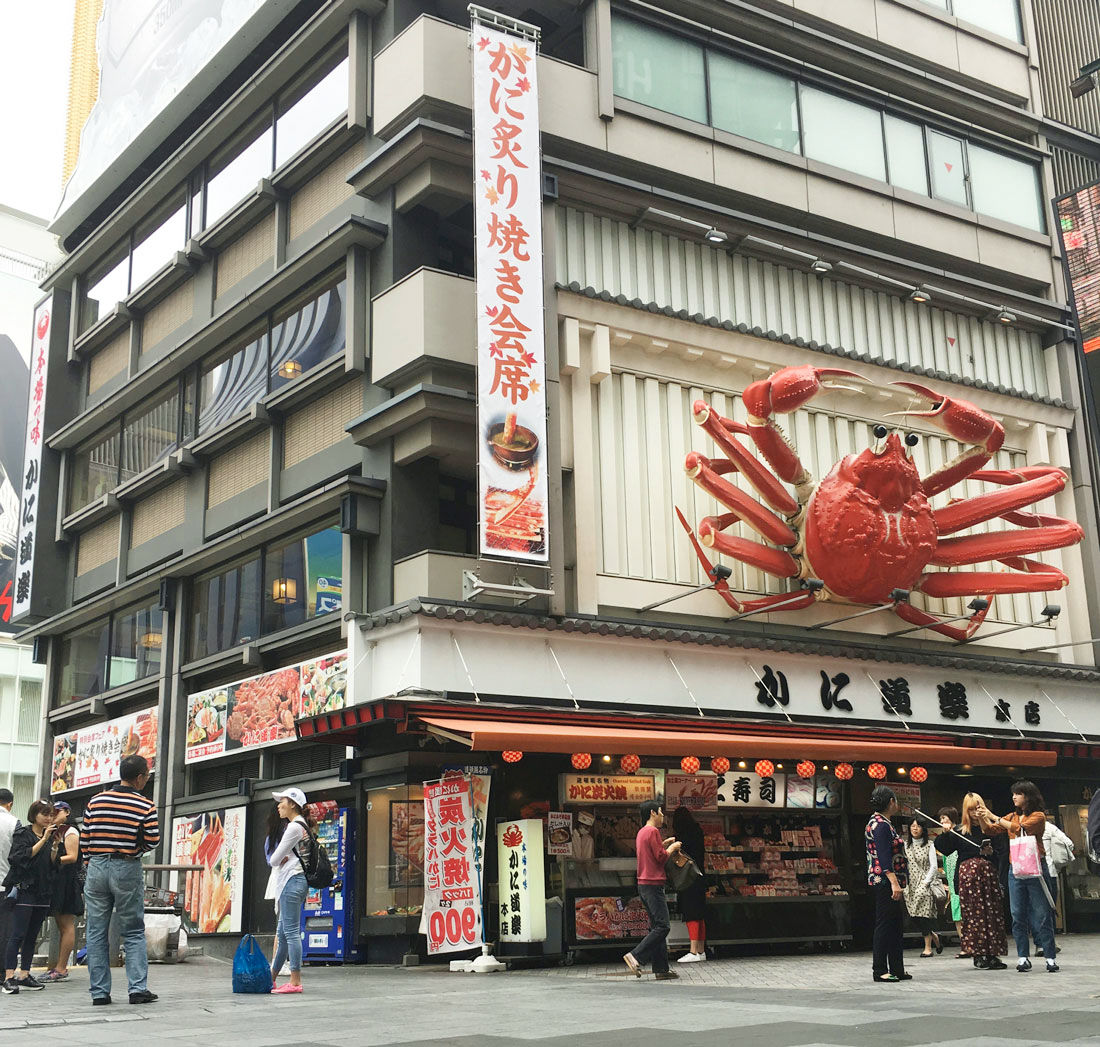
Kani Dōraku’s main Dōtonbori restaurant in Osaka. (Photo courtesy of Kani Dōraku.)
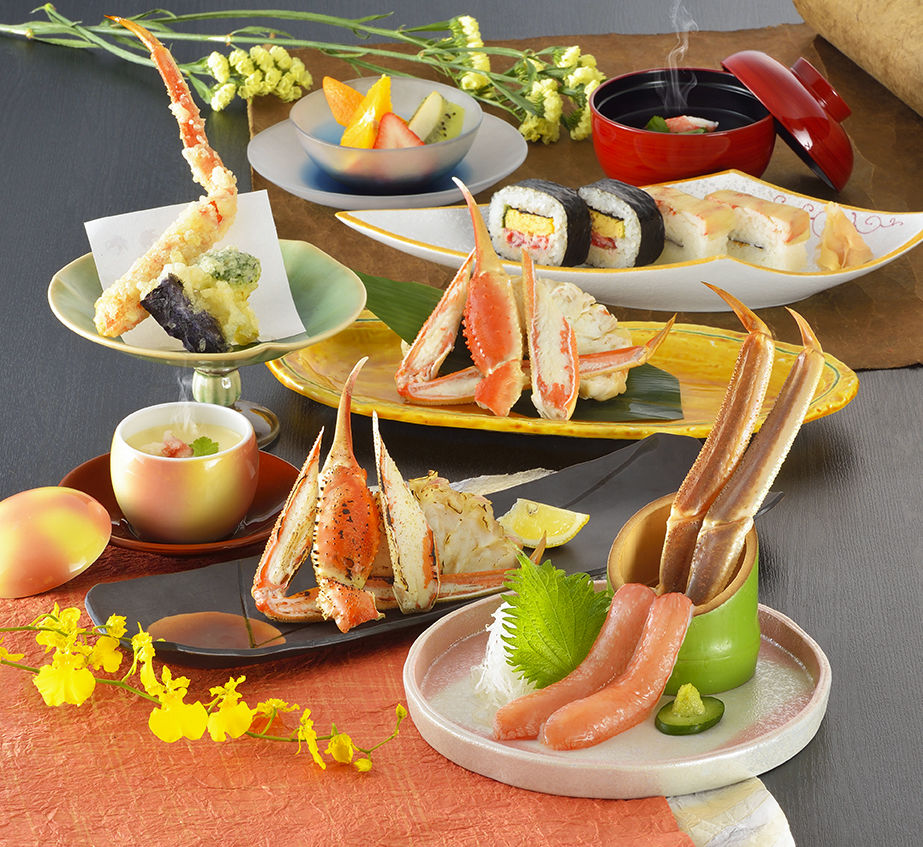
A traditional kaiseki multicourse meal of crab. (Photo courtesy of Kani Dōraku.)
Sushi is probably the most popular Japanese food among visitors from Southeast Asia, many of whom make a beeline to conveyor-belt sushi restaurants and immediately post photos of their dining experience on social media channels. Visitors from Malaysia and Indonesia commonly opt for salmon and ikura (salmon roe) sushi, some of the most familiar items served at the sushi eateries in their own countries. Visitors from Singapore, Thailand, and the Philippines, on the other hand, are likely to eat the full range of sushi offered, giving an interesting glimpse into the diverse cultures and religions to be found in Southeast Asia.
The Japanese government expects as many as 1.4 million Muslim visitors in 2020, and the country will need to ramp up its level of food hospitality by the time of the Tokyo Olympics and Paralympics.
Halal-certified restaurants must keep ingredients, dishes, and cooking utensils intended for Muslim consumption completely separate from those for other guests. Pork, pork-derived foods, and seasonings and condiments containing alcohol cannot be used at all. The strictest adherence to halal requirements means even the people who prepare the food must be Muslim. These are difficult standards to meet in Japan.
Still, Muslim-friendly eateries and restaurants try their best to comply, including seating Muslim customers away from customers drinking alcoholic beverages. In ways small and large, Japan is making sincere efforts to accommodate its Muslim visitors and ensure that they will enjoy their time in this country.
(Originally written in Japanese. Banner photo: Muslim tourists in Asakusa. © Ōtsuka Tomohiko.)